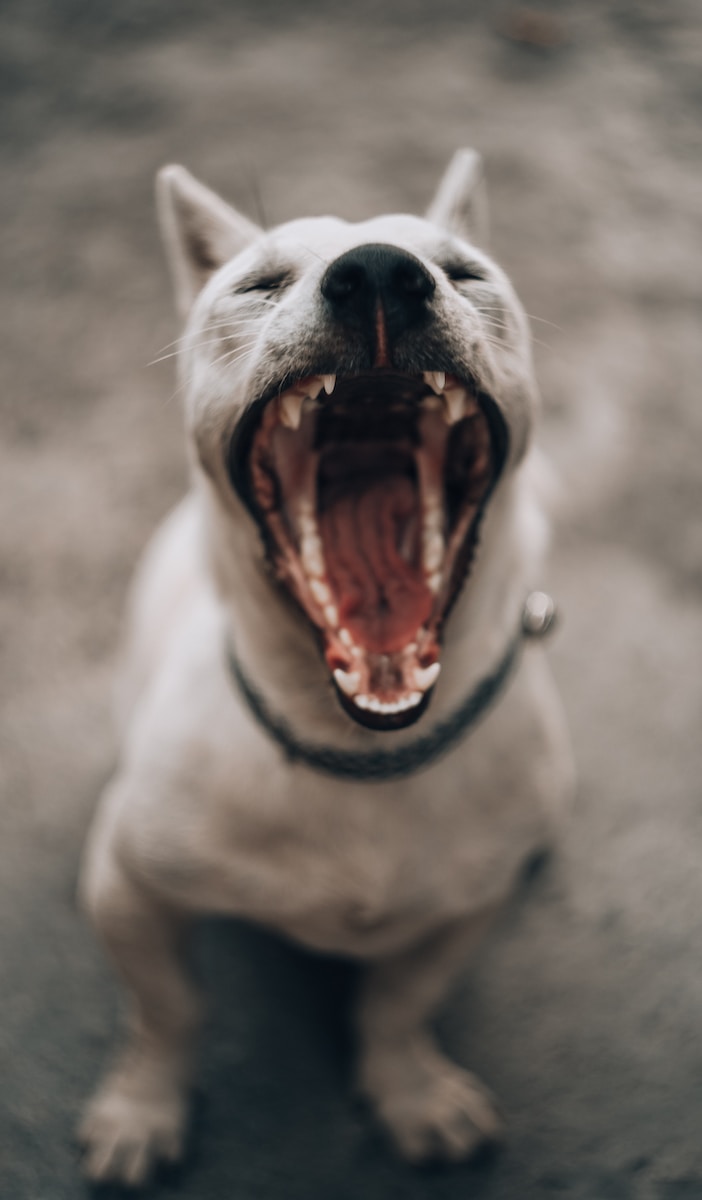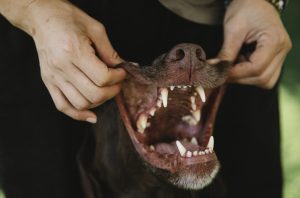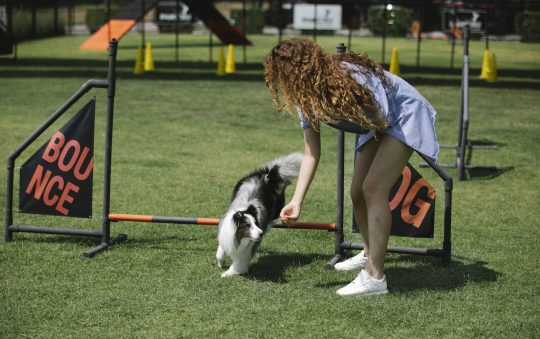Maintaining your dog’s dental health is essential for their health and longevity. Here, we’ll walk you through the basics of everything you need to know to keep your pup’s teeth in tip-top shape. Here’s what you should do:
First off, regular dental check-ups by your vet are essential. They can evaluate your pup’s mouth and identify any potential problems before they become serious. Additionally, they can inform you of which products and services are best for your pup’s particular needs.
It’s also important to brush your pup’s teeth at least 3 times a week. Use a toothbrush specifically designed for dogs, like a finger-tip brush, and toothpaste formulated for canines. This can be a challenge at first, but if you make it into a game, your pup will get used to it in no time. Don’t forget to address their gums too!
Forget bones or toys, there are better alternatives for cleaning a dog’s teeth. Look for dog chews, treats and kibble designed to tackle plaque and tartar. Chewing helps massage gums and can dislodge food particles from the teeth.
Also, make sure your pup is drinking enough water. Hydration helps break down food particles, while saliva makes teeth slippery and hard to get a grip on. That’s why it’s common to see people using a ‘water bottle’ for their pup.
Finally, it’s important to take simple measures to reduce the buildup of plaque on your pup’s teeth. For example, avoiding sugary snacks and switching from kibble to wet food can make a big difference.
Causes of Bad Dog Teeth Health
Failing to maintain good dental health can cause a myriad of problems. Tooth decay, gum disease and even tooth loss can manifest if measures aren’t taken. Generally, the biggest cause of bad dog teeth health is plaque. Plaque is caused by bacteria which feast off the sugars in your pup’s food. Eventually, this will harden and cause tartar – the yellowish deposit you often see on a dog’s teeth.
Tartar build-up can cause various issues like infection and ulcers, which can be painful and impede their ability to eat. That’s why removing plaque should be high on your list of priorities.
Fortunately, there are quite a few things that can be done to prevent plaque build-up. Brushing your pup’s teeth, giving them chews and treats formulated for dental health, and regularly visiting the vet should do the trick.
Keep in mind that different dogs have different needs. Your pup may require special attention depending on their age, diet and the shape of their teeth. Speak to your vet to ensure that your pup’s dental health is being adequately taken care of.
DIY Cleanings to Keep Your Dogs Teeth in Top Shape
It’s OK to give your pup a helping hand when it comes to dental health. DIY cleanings can be achieved without the help of a vet. Toothbrushes, toothpaste, dental wipes and even dental kits are all great options for cleaning pup’s teeth.
However, if your pup is not too keen on the idea of brushing, don’t force them. Instead, you can experiment with dental wipes which are damp cloths made for cleaning dog teeth. Alternatively, you can try a toothbrush specially designed for dogs with short, soft bristles.
If you don’t feel comfortable cleaning your pup’s teeth yourself, it may be better to leave it to the professionals. That said, doing DIY cleanings can help you identify any problems early and ensure they receive prompt veterinary care.
How to Monitor Your Dogs Teeth
It’s important to keep an eye on your pup’s dental health. One of the easiest ways to do this is by regularly inspecting their teeth at home. Simply open your pup’s mouth and take a look. You’re looking for any changes in colour, discolourations, broken or chipped teeth or even bloody gums.
However, don’t forget to share your findings with your vet. After all, any changes in your pup’s dental health could be an early warning sign of a more serious problem.
Indicators of Poor Dental Health
When it comes to poor dental health, there are quite a few things to look out for. Clicking or popping noises when your pup moves their mouth, bad breath and red or bleeding gums are all signs that could point to an underlying issue. Additionally, your pup may start hiding their food, avoid eating or not wanting to open their mouth.
Sometimes, changes in behaviour could also signify dental health problems. Pay attention to your pup’s mood and see if they act differently. Do they seem unusually quiet or avoid activities they usually enjoy? If so, it may be time to take a closer look at your pup’s teeth.
Preventative Steps and Best Practices to Keep Your Dogs Teeth in Top Shape
Prevention is always better than cure. Yet, there are quite a few preventative steps that can be taken to ensure that your pup’s teeth remain in top shape. As we’ve already discussed, regularly brushing your pup’s teeth and visiting the vet for dental check-ups are some of the best practices for getting ahead of any potential problems.
Additionally, limiting your pup’s access to sugary treats, switching from kibble to wet food and avoiding bones are all definitive steps for reducing the chance of dental diseases and bad breath. Alongside dental products and services, this should give your pup the healthiest and happiest smile possible. Do you need more convincing?
Finally, when in doubt, speak to your vet. They can provide a tailor-made solution to the health of your pup’s teeth and are by far the best people to advise you.





